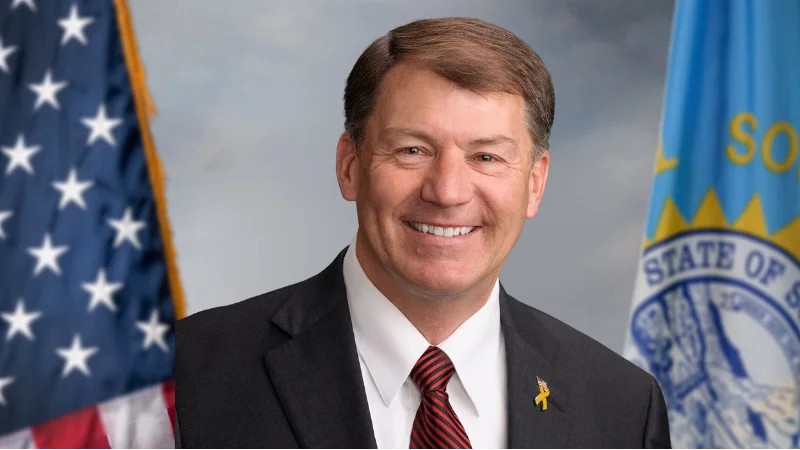Senator Mike Rounds, US Senator for South Dakota | Official U.S. Senate headshot
Senator Mike Rounds, US Senator for South Dakota | Official U.S. Senate headshot
U.S. Senator Mike Rounds (R-S.D.) issued a statement following the Senate's narrow passage of the reconciliation bill, known as the One Big Beautiful Bill Act. The legislation passed by a 51-50 vote, with Vice President Vance casting the tie-breaking vote.
“Last November, South Dakotans and the American people voted for a better, stronger nation that puts the safety and prosperity of American families first. They voted for policies that rein in government spending, cut taxes for the middle and working class and protect Americans from threats at home and abroad. With the Senate passage of the One Big Beautiful Bill Act, we are one step closer to delivering on those promises.
“Despite obstruction from Democrats that went long into the night, Leader Thune and our Senate Republican majority passed the bill this afternoon. The One Big Beautiful Bill Act is a win for families in South Dakota and across America. It delivers the largest tax cut for the working class in American history, boosts our national defense, secures our border and cuts wasteful government spending on the taxpayer’s dime. Specifically in South Dakota, it will save families from an average tax increase of $2,400 next year. It also introduces new savings for families by increasing the Child Tax Credit, no taxes on tips, overtime or car loan interest and giving middle-class seniors tax relief on Social Security. This means more money going back into the pockets of hard-working South Dakotans.
“I look forward to working with my colleagues as we build on this momentum and continue to deliver results for the American people.”
The reconciliation package includes funding aimed at strengthening national security such as $3.3 billion allocated for border security operations supporting Department of Defense personnel assisting Homeland Security with border enforcement activities; $9 billion dedicated to servicemember quality of life improvements including housing and healthcare; $25 billion directed toward development of space-based missile defense systems; and $28 billion earmarked to expand naval shipbuilding capacity.
Provisions affecting South Dakota households include making permanent current tax rates—avoiding an estimated $2,400 annual increase per family—and expanding child tax credits beginning in 2025. Seniors would receive lower taxes through an additional income exemption while workers who rely on tips or overtime pay would see deductions or exemptions up to certain thresholds.
The legislation makes several business-related provisions permanent: small business deductions remain intact; full expensing is restored for domestic research-and-development expenditures as well as new capital investments; Opportunity Zone incentives are renewed; and funding to regulatory agencies such as Consumer Financial Protection Bureau is reduced.
Healthcare measures aim to reduce improper Medicaid payments by introducing eligibility checks and work requirements for able-bodied adults without dependents seeking coverage—with exemptions included for veterans with disabilities or those caring for children or disabled individuals. Rural hospitals in South Dakota would receive support through a dedicated relief fund while staffing mandates affecting nursing homes are rolled back.
For agriculture, changes include stricter Supplemental Nutrition Assistance Program (SNAP) work requirements extended up to age 64—with some exceptions—and increases in reference prices for covered commodities through 2031 crop years. Crop insurance programs become more affordable particularly targeting beginning farmers while conservation programs see increased investment.
Senator Rounds also secured specific provisions benefitting South Dakota: funds were allocated toward cold spray repair technology research ($50 million), high-altitude military balloon projects ($50 million), artificial intelligence initiatives under Cyber Command ($250 million), spectrum agility testing ($25 million), community infrastructure support like Douglas School District upgrades ($100 million), expansion of B-21 bomber production capacity ($4.5 billion), advancement of AI ecosystems ($250 million), educational impact aid grants ($100 million), and satellite technology developments ($150 million).



 Alerts Sign-up
Alerts Sign-up